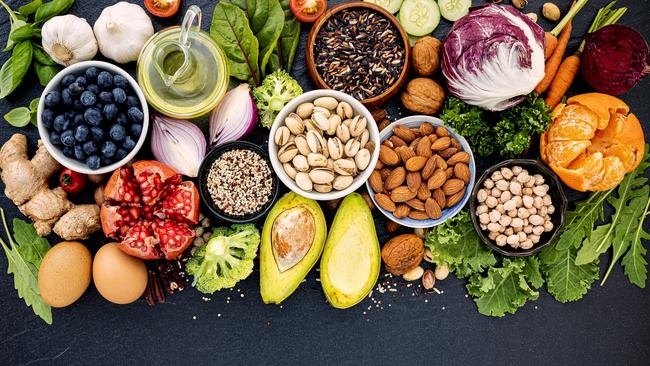Woolies reveals shock items Aussies put in their trolley
Australians have revealed what they can and can’t live without from the supermarket as cost of living pressures continue and lifestyle habits change.
National
Don't miss out on the headlines from National. Followed categories will be added to My News.
While the pandemic has taken a toll on our collective mental health, it’s prompted a positive shift in our eating and exercise habits, a new report obtained by News Corp has revealed.
The Living Healthy report, produced by Woolworths Group’s digital wellness hub Healthy Life, shows most Australians believe they’re healthier now than before the pandemic started, with more than 41 per cent now opting for home-cooked meals.
We’re also buying less processed foods and 30 per cent more vegetables, while most are eating the recommended serving of fruit and meat.
We’re reducing our alcohol intake too, with almost a third drinking less than two years ago.

HealthyLife chief health officer Simone Austin said the pandemic had provided a unique circuit breaker and a focus on health we hadn’t seen before.
“As a result, we have seen a number of positive health improvements,” she said.
It’s not all good news though.
The data, based on the responses of more than 2000 shoppers, revealed a third of the average shopping trolley was filled with ‘discretionary’ items – otherwise known as ‘sometimes foods’ – such as soft drinks, potato chips and ice cream.
That’s double the recommended limit.
We’re only buying half the recommended amount of vegetables too, despite the overall increase, and only four servings of carbohydrates, as opposed to the recommended six.
While most of us are eating the recommended serving of meat, the past two years have seen plant-based protein purchases rise by a whopping 194 per cent.
But accredited practicing dietitian Nicola Fox said proteins sourced from animals, such as cheese, eggs, meat, and fish, were better options.

“They contain all of the essential amino acids, and therefore have a high biological value,” said Ms Fox.
“Unfortunately plant-based protein foods don’t contain all the essential amino acids and thus have a low biological value. If included in a diet that also contains animal protein (they) can be perfectly balanced.”
The report revealed mixed results when it came to movement, energy levels, and mental health.
More than half of Australians said their quality of sleep was average or poor, with 39 per cent citing anxiety as the biggest contributing factor. A quarter believe their mental health has suffered due to the pandemic.
“Anxiety also affects the type of food we choose, often leading us to choose convenient foods that are less healthy,” said Ms Fox.
On the plus side, 28 per cent of Aussies feel COVID-19 has increased their resilience.
We’re moving more too, with 33 per cent of survey participants reporting increased exercise, and 28 per cent buying home gym equipment during the past two years.
Originally published as Woolies reveals shock items Aussies put in their trolley





